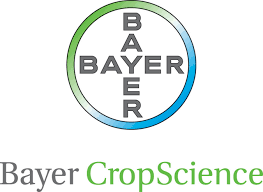Cargill’s ‘Digital Saathi’ – a mobile-first, AI-driven service platform and Bayer’s Better Life Farming Centres aims to improve market access for smallholder farmers.
Bayer CropScience a global major in agriculture has signed a Memorandum of Understanding (MoU) with Cargill, a global food corporation that creates connections across the global food system to help the world thrive.
This strategic partnership aims to revolutionize the agricultural landscape by offering farmers innovative solutions and facilitating optimal price realization for their produce. Drawing upon the capabilities of innovative platforms such as Cargill’s ‘Digital Saathi’ – a mobile-first, AI-driven service platform tailored to hyper-localized needs, and Bayer’s Better Life Farming Centres, that supports over 500,000 smallholder farmers, this strategic partnership is dedicated to improving market access for smallholder farmers.
Accessible in multiple languages, including English, Kannada, and Hindi, Digital Saathi caters to farmers in various districts of Karnataka and Madhya Pradesh, facilitating improved decision-making processes. This partnership between Bayer and Cargill endeavors to connect with 3 million farmers across India within the next five years. Initially, the partnership will be implemented in Karnataka and Madhya Pradesh and subsequently expand to other regions.
Together, Bayer and Cargill are committed to equipping farmers with digital solutions, including discussion forums and comprehensive information on market prices, weather forecasts, and pre- to post-harvest insights. Bayer’s eCommerce strategy involves expanding tailored solutions through the Digital Saathi app, starting with corn farming in Karnataka and later expanding to other crops and regions.
By collaborating with Food Value Chain Partners, the aim is to revolutionize and sustainably impact the agricultural sector. This partnership also provides farmers access to Bayer’s leading corn portfolio, DEKALB®, on the Digital Saathi Platform, enhancing their agricultural capabilities.
Additionally, Cargill’s Digital Saathi platform offers convenient Crop Input e-commerce and Crop Sell Offer features, ensuring farmers have improved access to high-quality crop inputs and facilitating market linkages between farmers and aggregators through a digitally enabled marketplace. This integrated approach aims to enhance farmers’ decision-making capabilities, streamline agricultural operations, and foster efficient and seamless connections within the agricultural ecosystem.
Digital Saathi has already successfully engaged with more than 50,000 registered small farmers and is projected to expand its reach to 3 million farmers across eight states, including Karnataka and Madhya Pradesh by 2027. In line with Cargill’s global objective of providing sustainable agricultural practices training and improving market access for 10 million farmers by 2030, the introduction of Digital Saathi represents a significant stride toward achieving this goal.
Speaking on the partnership, Simon-Thorsten Wiebusch, Country Divisional Head, Crop Science Division of Bayer for India, Bangladesh and Sri Lanka said, “Access to advisory, quality inputs, credit, technologies, or markets is one of the biggest enablers to unlocking smallholder value, and it lies at the very core of what this partnership is all about. We also believe that digitization is key to this exercise therefore we are looking at leveraging all relevant digital tools to ensure that we are able to deliver greater value to the smallholder farmers and create for them a level playing field.”
Simon George, president of Cargill in India, said, “As Cargill, we are dedicated to creating innovative digital solutions, and we are thrilled to collaborate with Bayer to foster a productive and profitable ecosystem for farmers across India. This partnership marks a significant milestone in our journey towards sustainable and prosperous agriculture. By leveraging our combined strengths, expertise, and global networks, we remain steadfast in our commitment to support farmers worldwide and cultivate a resilient and inclusive food system.”
Commenting on the partnership, the founder of Digital Saathi, Raman Saxena said, “We initiated the introduction of farm advisory subscription and farm management services (soil testing) on our platform earlier this year, aiming to provide farmers with a comprehensive solution for their agricultural requirements. Through this partnership, we aim to provide access to wide range of quality inputs and implements to farmers via Agri Input Market place which will improve their yields and simultaneously provide holistic solution for maximizing farmers income.”
Cargill’s ‘Digital Saathi’ – a mobile-first, AI-driven













